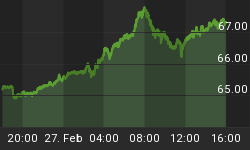Austrians went to the polls today to elect a new president. But for the first time in living memory the country's two mainstream parties -- Austrian People's Party and Social Democrats -- are out of the running while far-right and far left candidates stage an acrimonious run-off. Early returns (as of Sunday morning US Pacific Standard Time) had them too close to call.
Here's the BBC's overview:
Austria votes in run-off between far right and independent
Austrians have begun voting in a presidential run-off poll that could elect the European Union's first far-right head of state.
Norbert Hofer, of the Freedom Party, faces independent Alexander Van der Bellen, backed by the Greens. In the first round, Mr Hofer, 45, secured 35% of the votes, while Mr Van der Belle polled 21%. The run-off is expected to be close.
For the first time since World War Two, both the main centrist parties were knocked out in the first round. Such was the political shock at the far right's first-round win that the Chancellor (prime minister), Werner Faymann, resigned after losing the support of his Social Democratic party colleagues. The Social Democrats and the People's Party have governed Austria for decades, either alone or in coalition. At the last general election in 2013, they together won just enough votes to govern in a "grand coalition".
The migrant crisis has become the key issue. Ninety-thousand people claimed asylum in Austria last year, equivalent to about 1% of the Austrian population, and the Freedom Party has run a campaign against immigration.
The presidency is a largely ceremonial post but a Hofer victory could be the springboard for Freedom Party success in the next parliamentary elections, scheduled for 2018.
Austria is faced with a stark choice for its head of state: a Green Party professor, Alexander Van der Bellen, or Norbert Hofer of the far-right Freedom Party - a soft-spoken, charismatic gun enthusiast who won a decisive victory in the first round of voting in April.
Support for the Freedom Party has risen because of deep frustration with the established parties and, more recently, because of fears about the migrant crisis. At his final election rally on Friday in Vienna, Mr Hofer, 45, sought to hammer home his message that immigrants needed to integrate. "Those people who respect and love Austria and have found a new home here are warmly welcome," he said to applause. "But those, it has to be said, those who do not value our country, who fight for Islamic State, or who rape women, I say to these people: this is not your homeland. You cannot stay in Austria."
Right-wing parties are gaining strength in a number of EU countries. European leaders will be watching the result closely.
The presidents of the European Commission and the European Parliament, Jean-Claude Juncker and Martin Schulz, have both expressed concern that Mr Hofer could win. "I say to them very politely but firmly: we don't take orders from Brussels or Berlin," Mr Hofer said at the rally.
Hofer and Van der Bellen engaged in an angry TV debate earlier in the week, described as "political mud-wrestling" by commentators.
Pretty amazing when you think about it: The two main parties in a major European country bystanders in the same election. In US terms this would be like Bernie Sanders and Donald Trump running as third party candidates and winning -- which upon reflection is not that different from what's now happening. All it will take is for Hillary to get in indicted, which has been a distinct possibility ever since her days as a commodities trader (look it up).
Austria's situation is also par for the course throughout Europe. Far-left Syringa took power in Greece last year (though they were quickly crushed and co-opted by Germany and the IMF). Similar parties have taken or are taking power in Portugal and Spain, with right-wing political earthquakes possible this year in France and the UK.
To repeat the thesis of this series: When a country borrows too much money and allows a political/financial elite to become a de facto aristocracy, the system becomes ungovernable and the old political order is eventually overturned.
Viewed this way, what the world is experiencing today might feel new, but it's actually part of a long, depressing linage of financial blunders and power grabs dating back to the Roman Empire and continuing through John Law's Mississippi Bubble, the French Revolution and Weimar Germany, to name just a few.
And it's just getting started. The EU won't reform itself anytime soon, which means continued high taxes, mass-immigration and stifling regulation of small business. So poverty and inequality will continue to expand until every election is a potential revolution. The US, meanwhile, continues to borrow its usual couple of trillion every year, digging the hole ever deeper while the political/financial class ignores the message being sent by Trump and Sanders voters. Japan, of course, is over as a going concern and will soon join the political chaos party.
Another way of looking at today's political world is via Henry Kissinger's distinction between status quo and revolutionary countries. The former benefit from the way things currently are and strive for stability while the latter don't like the status quo and want to tear it up and start over. Political movements work the same way, with the mainstream parties trying to keep what they've created (or stolen) while those left off the gravy train or not shielded from the downsides of current politics decide they have nothing to lose and embrace "change" however it happens to be defined. When the revolutionaries gain momentum, discontinuities result.
So Austria possibly electing a "nationalist" to its figurehead presidency is just one small step along a road that leads to tightly-controlled borders, aggressively-devalued currencies and wealth confiscation by a variety of overt and covert means.















